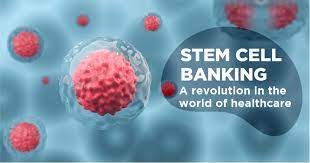What is Stem cell preservation?
Stem cell preservation is the process of collecting and storing stem cells for future medical use. Stem cells are unspecialized cells that can develop into any type of cell in the body, and they have the potential to regenerate and repair damaged tissues. Stem cell preservation involves collecting, processing, and storing stem cells, usually from a person’s bone marrow or umbilical cord blood, for future use. Stem cells can be used to treat various diseases and medical conditions, such as cancer, diabetes, and sickle cell anemia.

The potential benefits of stem cell preservation include:
- The ability to treat various diseases and medical conditions, such as cancer, diabetes, and sickle cell anemia.
- It can also allow for the storage of stem cells for future use in regenerative medicine, organ and tissue transplantation, and personalized medicine.
- It can help to prevent the need for donor organ and tissue transplants, which can be difficult to find, as well as reducing the risk of complications associated with transplants.
- Storage of stem cells for future use.
How long can stem cells be stored?
Stem cells can be stored for extended periods of time depending on the type of storage. For example, cryopreservation or freezing can preserve stem cells for up to 30 years or longer. Other types of storage, such as liquid nitrogen or dry ice, can preserve stem cells for shorter periods of time. It is important to note, however, that the longer a stem cell is stored, the less viable it may become.












